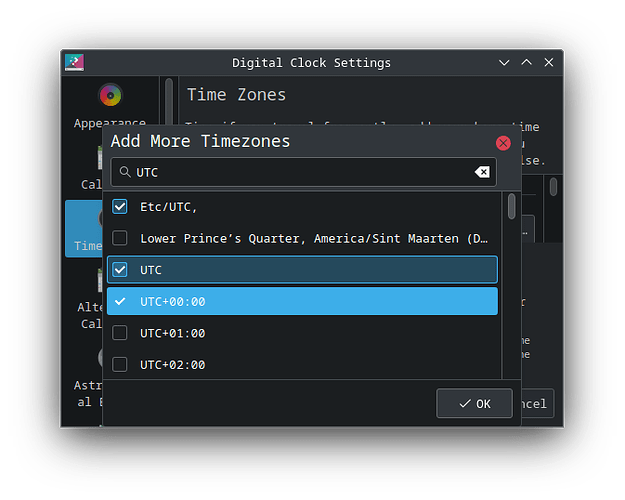@rokejulianlockhart
I’m solely referring to hiding these entries from the GUI - not modifying the underlying library providing this, if one exists.
Well, it would also necessitate that the KDE devs are willing to maintain a repo / translation table of their own, through whatever complications may arise later. As an example serving simultaneously as a pro and a con, IANA intends to keep a record of historic differences as well, so besides “Europe/Berlin” a.k.a. “most of Germany”, there also is a “Europe/Busingen”, because
# Büsingen <http://www.buesingen.de>, surrounded by the Swiss canton
# Schaffhausen, did not start observing DST in 1980 as the rest of DE
# (West Germany at that time) and DD (East Germany at that time) did.
which is of no interest to anyone who wants to calibrate his computer’s clock right now and for the foreseeable future, of course. But that doesn’t mean that the KDE devs would be any more interested in dealing with it just to have it special-cased out of your sight …
(And then the next thing that’ll happen is that people will ask to be allowed to find Europe/Berlin a.k.a. CE(S)T by typing in “Mitteleuropäische Sommerzeit” (our DST’s proper name per the governing national legalese, the ZeitG) or MESZ.)
They’re using UTC, but erroneously refer to it as Zulu time
If you think that’s bad, let’s talk about how GMT used to be a sidereal (i.e., observation-of-the-Sun-derived, thus necessarily DST-free) timescale, and wound up the name of the non-DST half of the UK’s standard technical (UTC-based) timescale today …
(Yes, that means that, depending on the accuracy you want, UTC and GMT may not be the same timescale.)
